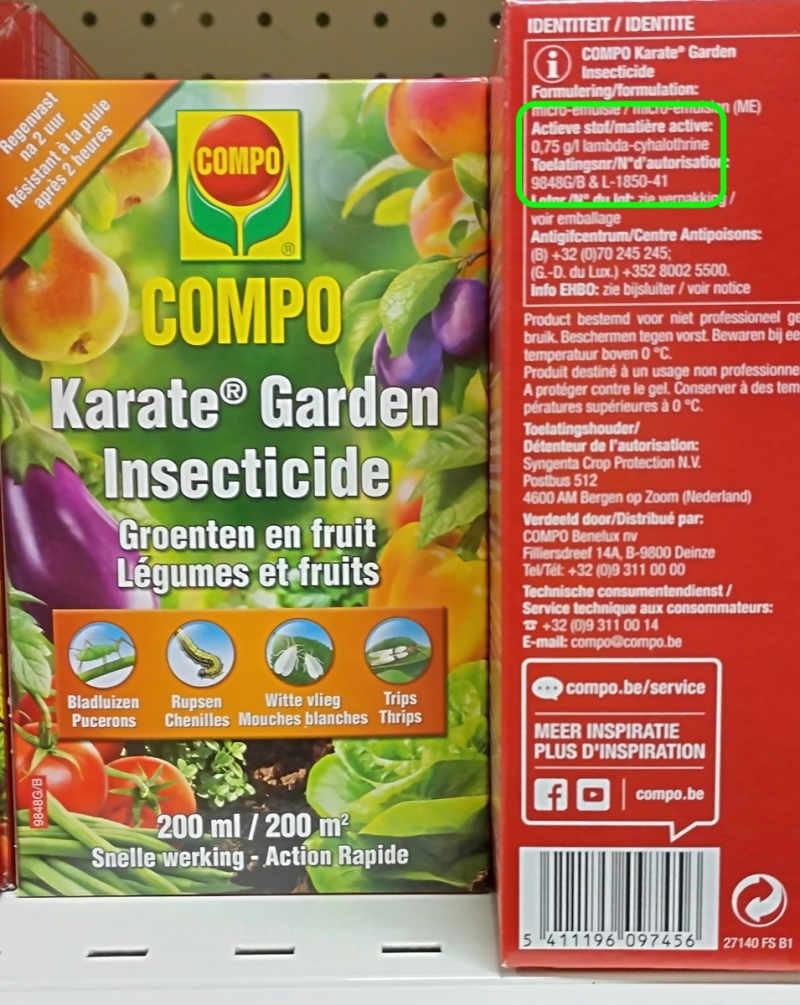Karate, Delete, trade names for highly toxic pesticides sold to individuals online and in garden shops. We looked at gardening products and insect repellants in Belgium. PAN Netherlands did the same in their country. We found highly toxic substances for garden use, like the neurotoxic deltamethrin, the neurotoxic beekiller and acetamiprid (in Belgium) and the PFAS pesticides lambda-cyhalothrin and flupyradifurone. Where farmers are obliged to follow a training for a spraying licence, inexpert citizens are enticed to spray these products, sometimes directly on the vegetables in their garden. And the extremely toxic beekiller imidacloprid - banned in agriculture - is still available in pet products against fleas and to exterminate other insects. Why is all this allowed by the authorities? And what is the situation in your country?
Amateur gardeners in Belgium are tempted by shops and advertisements to buy very nice, clean, practical products. They are not aware of the dangers and believe the products are well tested and very safe. They do not know that tests were very incomplete and done long ago and that concerning recent scientific findings have not been taken into account. We are convinced these products are dangerous and should not be sold at all. Our 'favorites' are widely sold online, in every Brico and garden centres all over the country.
Nr 1: To spray on your vegetables
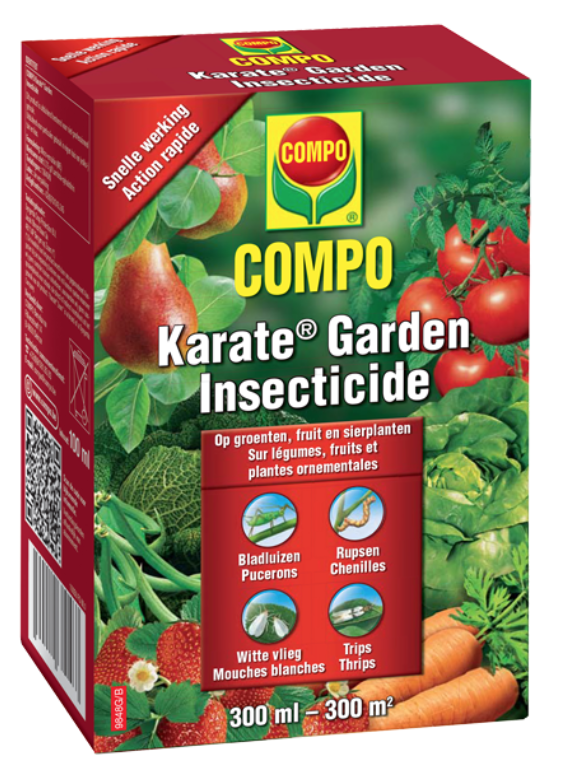
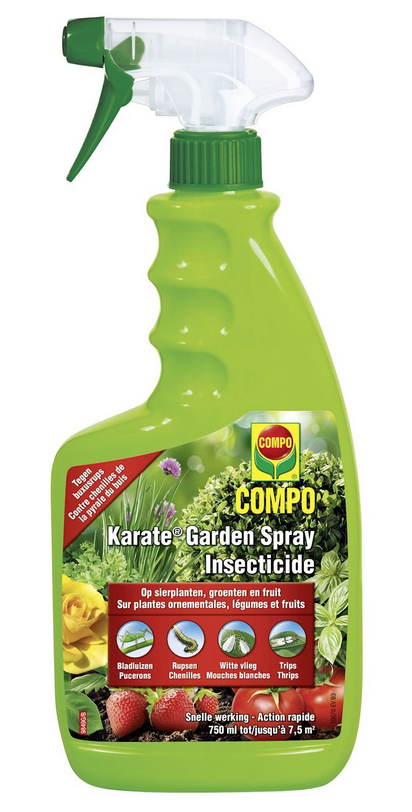
It has such a 'nice' and long systemic effect: "The formulation of karate garden ensures rapid uptake by the plant, making the product rainfast after 2 hours. Moreover, this product works after up to 2 weeks! "
Composition: 0,75g /l lambda-cythalothrin (a very toxic PFAS pesticide and part of our "Toxic 12" pesticides that should have been banned long ago)
Nr 2: More vegetable protection
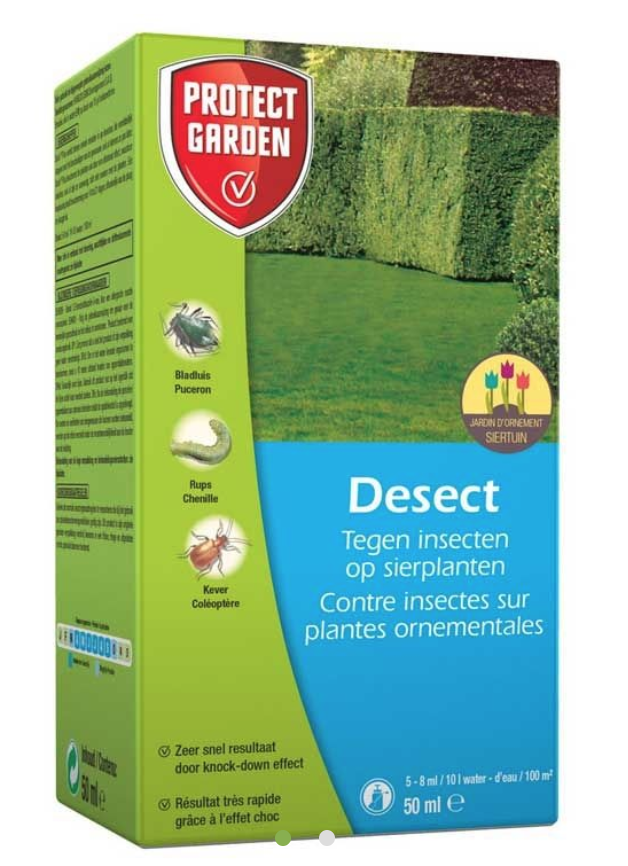
Let's 'desect' (thanks Bayer)
Composition: 5 g/l deltamethrin (a neurotoxic pesticide, toxic to reproduction and a beekiller. We recently asked the EU Commission to ban it immediately, because new scientific research shows that deltamethrin cuases damage to offspring in doses that are now considered as 'safe'))
Nr 3: Protect your roses
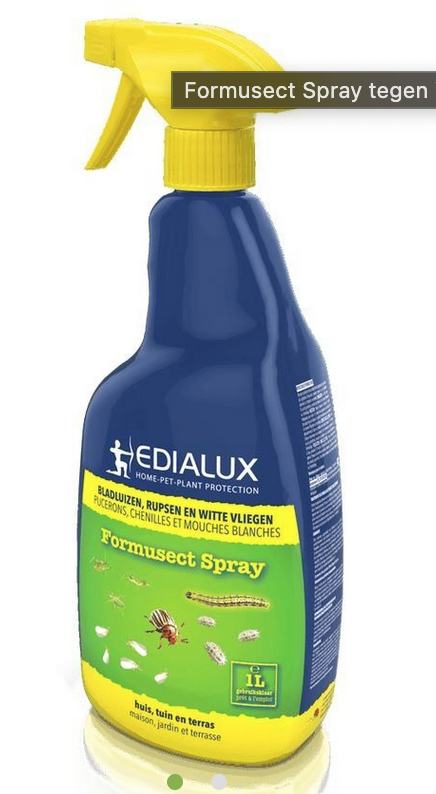 Composition: 0,05 g/l cypermethrin (very toxic, neurotoxic and beekiller, another member of the 'Toxic 12' that should have been banned long ago)
Composition: 0,05 g/l cypermethrin (very toxic, neurotoxic and beekiller, another member of the 'Toxic 12' that should have been banned long ago)
Nr 4: Get rid of bugs on ornamental plants
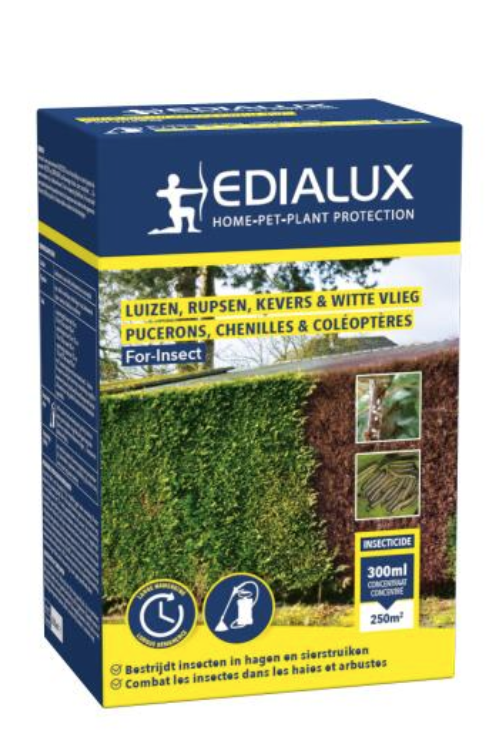 Composition: 5 g/l acetamiprid (a neonicotinoid beekiller, toxic to reproduction a and neurotoxic pesticide)
Composition: 5 g/l acetamiprid (a neonicotinoid beekiller, toxic to reproduction a and neurotoxic pesticide)
Nr 5: Seen enough of the old stuff? Try something new!
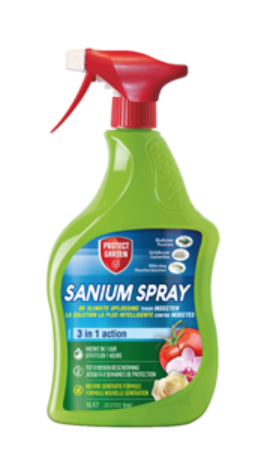 O what a relief! This one is 'friendly' for bees and insects! Really??
O what a relief! This one is 'friendly' for bees and insects! Really??
"Effective and reliable against a variety of harmful insects.
Systemic action for long-lasting protection.
Friendly to beneficial insects such as bees."
Composition: 25 g/l flupyradifurone (a nonicotinoid beekiller and a PFAS pesticide that likely contaminates water with the small and very persistent TFA)
All these products contain highly toxic pesticides and should not be used anywhere. And certainly not sold to inexperienced users.
PAN Netherlands research: Too dangerous for humans and nature to use in the home and garden
PAN-NL investigated which pesticides for home and garden use are available online and in shops in the Netherlands. They found a huge range of aerosols, powders, concentrates and attractants against various ‘pests’, against flying and crawling insects, against spiders, against weeds, mosses and algae. Apart from highly effective but very toxic insecticides, agents based on natural substances are also on offer. These are generally better but they too can be toxic. They are often sold by the same companies that sell the very toxic ones too.
Irresponsible selling
Margriet Mantingh, president of Pesticide Action Network Netherlands: "To spray fields, farmers have to undergo training and have a spray licence, while at the same time anyone can spray hormone-disrupting and neurotoxic poisons and PFAS in their garden without knowing it." PAN Netherlands wants a ban on harmful pesticides for non-professional users. By taking preventive measures, nuisance insects in the home, garden and kitchen can be avoided in most cases.
We ask authorities to take action and ban the sale of toxic pesticides to the general public.
Read more:
